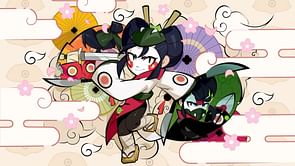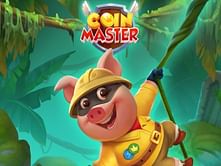
What Makes Quordle Unique Compared to Other Games?
Created by David Mah and Freddie Meyer, Quordle is as unique as they come even if it was inspired by both Wordle and Dordle. It tasks players with solving four different grids simultaneously, each with a five-letter word, inside nine guesses where every guess applies to every grid. That makes it one of the most challenging word games on the market. However, the unlimited practice mode has helped players improve quickly and get a leg up as it allows solvers to find their optimal strategy before they tackle the daily challenge. But what truly sets Quordle apart from the rest is that it asks players to utilize advanced multitasking and logical thinking skills, while also maintaining an advanced vocabulary to beat the daily puzzle.
Wordle vs. Quordle: Key Differences
While Wordle and Quordle challenge players to deduce hidden words using color-coded feedback, they offer different experiences and challenges.
Wordle focuses on a single five-letter word daily, while Quordle challenges players to solve four five-letter words at once. Wordle gives players six attempts to guess the word correctly. Quordle, acknowledging its increased difficulty, allows nine attempts to solve all four words. Wordle features a single 5x6 grid for one word. Quordle presents four separate 5x9 grids arranged in a 2x2 format, each representing an independent puzzle. Quordle significantly increases the complexity by requiring players to balance their guesses across four puzzles. Each guess in Quordle applies to all four words simultaneously, demanding more strategic thinking and efficient information gathering. Wordle offers only a daily challenge mode. Quordle provides three modes: Daily Quordles (similar to Wordle's daily challenge), a Sequence mode (where players solve one word at a time with 10 attempts), and an unlimited practice mode. Quordle is generally considered more challenging due to its multi-word format and the need to juggle information across four puzzles simultaneously.
Top Alternatives to Quordle for Word Puzzle Enthusiasts
From games that ask players to solve 16 words to games that offer a creative spin on a traditional format, the internet has something for everything and each one is just as challenging and engaging as the last.
The list of Quordle alternatives includes the more popular word games like Wordle and Strands but it also has a few that perhaps even die-hard fans won't have heard of.
Dordle: Solve two five-letter words simultaneously.
Octordle: A more challenging game where players guess eight words at once.
Sedecordle: Push your puzzle-solving skills with 16 words to solve in one session.
Antiwordle: The goal is to avoid guessing the correct word for as long as possible.
Lewdle: A cheeky twist, focusing on solving rude words while avoiding offensive slurs.
Strands (The New York Times): A word search-style game with daily themed challenges.
Worldle: Test your geographical knowledge by identifying countries based on their outlines.
Absurdle: A tricky game where the target word changes mid-game to challenge players.
Crosswordle: Combines elements of crossword puzzles with the Wordle format.
Keyword (The Washington Post): A daily word challenge from the Post’s puzzle collection.
Plusword (The Telegraph): Another daily word challenge from a respected news outlet.
Redstone's Crossword App: Offers multiple difficulty levels, frequent updates, and a large puzzle archive for mobile users.
Why Quordle Stands Out in the Growing Word Game Market
When Wordle was first released, the reason it became popular wasn't just the fact it forced users to think outside the box for words, but because of social media and the fact that it offered bragging rights. Since then, several word games have been released and have thrived but few have been as complicated and tricky as Quordle, even though it was only born because the creators were inspired by several word games they played, including Wordle. While other games do have multi-word challenges, Quordle ups the ante by giving only nine chances and asking players to solve all four words at once.
That added pressure plays upon the puzzlers as it forces them to use every aspect of their linguistic and cognitive skills to beat the daily challenge. Things have only improved since the game's acquisition by Merriam-Webster, with it now capable of thriving in a market filled with big-ticket games like Wordle, Spelling Bee, and a few others.









